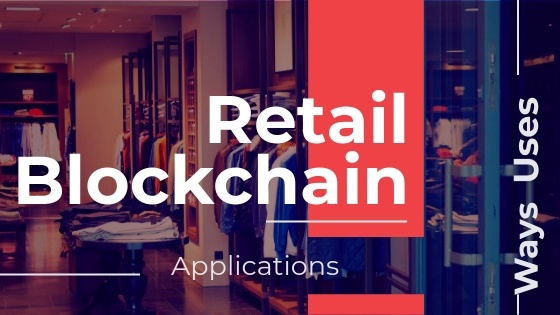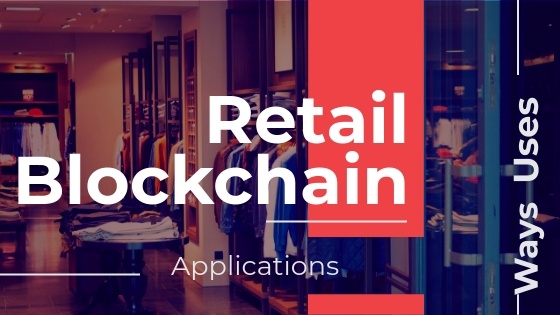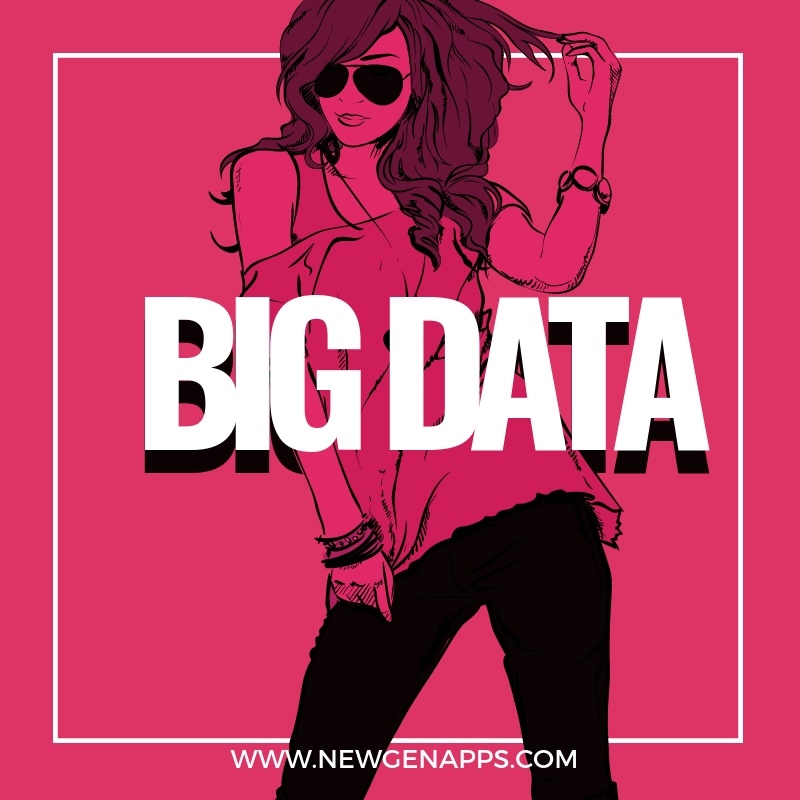1 min read
Bringing Analytics in Design: 7 Novel Ways of Using Big Data in Fashion
There is no doubt in the buzz big data has generated in the business. Big data analytics has revolutionized the decision making and changed...

No doubt blockchain is a revolutionary technology. In a very short time, it has effectively given rise to not just a currency but a complete virtual financial market. The debate about the value of Bitcoin (or any other cryptocurrency) can go for years - trust me it’ll - but the entire tech community around the world is largely positive about blockchain. Though the tech attracts financial applications at its core, it offers scope in distinct non-financial sectors as well. One such sector where blockchain can prove to be groundbreaking is the retail.
A market research suggests that blockchain could reach critical adoption by 2020 and attain general acceptance from consumers by 2025. An article in Retail Potential also suggests that the tech can improve the efficiency of processes from 40 to 60%. With so many researchers in favor, retailers are bound to explore the range of possibilities as it is their chance to stand out as an industry thought leader.
Interest in modern technologies? Checkout our resources section and grab your free eBook today!
In this article, we will explore some possible applications of blockchain in retail and how some tech companies and retailers are banking on the opportunity.

Cryptocurrencies are yet to find their way into our daily transactions but if we go by the general trends, they might end becoming a medium of digital exchange. They need to have general accessibility and acceptance for this to hold true. Which calls for efforts from both retailers and consumers.
Unfortunately for a tech-averse person, all this sounds like too much of work. The terms Bitcoin, ICO, Ethereum, Blockchain, Cryptocurrencies etc. all sound similar to them. Moreover, they would need to open a wallet, understand the trading process, invest money, and handle an entirely IT-backed portfolio when they don’t even know what it is. Hence the effort of making things easy falls over to the IT companies and retailers.
TenX, a startup in Singapore has made some great strides in this domain. It connects the digital currency wallet to a Visa wallet thus, allowing consumers to use their Visa card to spend crypto-currencies. Another company, BitPay, has created an integrated system between Bitcoin and a point of sale. Now retailers can accept payments in the form of cryptocurrencies. Some retailers like the Burger Kings in Russia have already started accepting Bitcoin payment as well.
Read More: The biggest benefits and best uses of Chatbots in retail
Blockchain allows the use of smart contracts i.e. a set of instructions that are automatically executed if the given conditions are met. This can address consumer claims and settle conflicts without the need for hefty documentation or court proceedings, at least for trivial matters. A smart contract allows the necessary documents to be stored in a digital ledger hence the customers won’t need to search for receipts, warranty documents, insurance papers etc. Hence we can expect blockchain powered automated customer service.
One such initiative in this space is Warranteer. The organization is representing the rights of consumers in the market. The consumers should obviously be able to easily access information regarding their purchase and receive immediate service in case of a product malfunction. Warranteer is a blockchain application that gives consumers a piece of mind while retailers a method to create trust and loyalty. With more such initiatives in future small retailers would be able to compete with the giants as both can offer a similar level of service and experience.
Read More: 5 path-breaking applications of IoT in Retail
Last but not the least, blockchain can aid in inventory management and logistics for retailers. In blockchain, we can maintain lengthy records of any sequence of events. These events can relate to the purchase of a product, their shipping logs from manufacturers to consumers, their state, quantity etc. Once data is recorded it cannot be changed hence this removes the scope of data fudging and manipulation.
This has given rise to many platforms and solutions that retailers can use for maintaining inventory. One such initiative is Provenance. The organization aims to create an open transparent digital record of every inventory item for the retailers. This will help retailers manage their shelves based on reliable real-time data.
Read More: 5 Uses of Augmented Reality in Retail
Come to think of it, Blockchain can decentralize any centralized service that exists for the sole purpose of establishing trust. In case of retail let's say companies like Amazon and eBay. Obviously, this is a really long-term possibility but it definitely is possible. What if our returns and purchases end up being managed by a digital autonomous organization?
We at NewGenApps specialize in working on new age technologies like IoT, artificial intelligence, blockchain, etc. If you are looking for developers to handle your next intelligent initiative then feel free to contact us:

1 min read
There is no doubt in the buzz big data has generated in the business. Big data analytics has revolutionized the decision making and changed...

Let me introduce you to a word. You might know it already. You might be even aware of its importance. But you are here. This means that you want to...